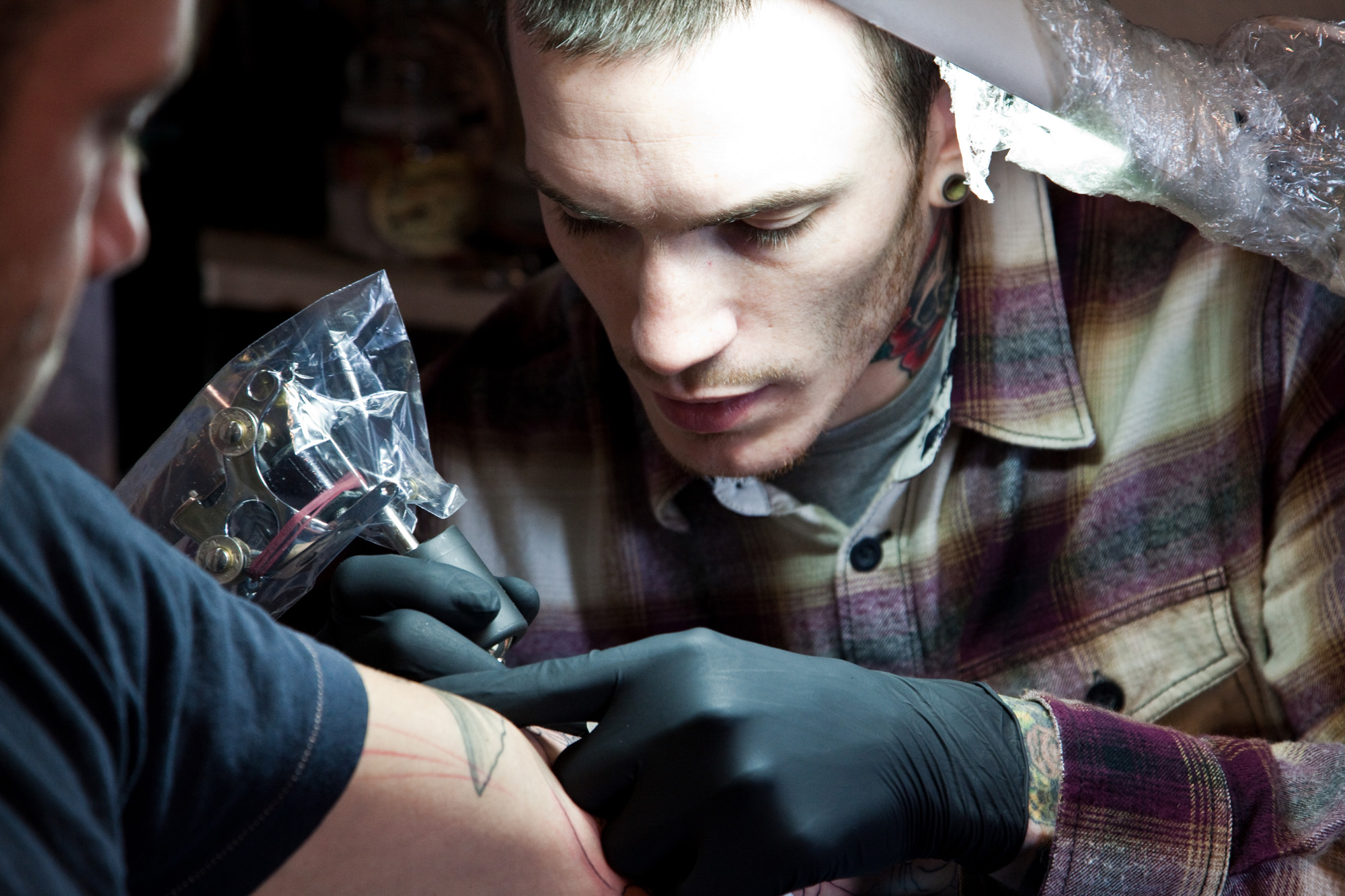
LONDON (BP)–Dave’s been inflicting pain on people almost all day — every day — for 12 years. But he likes you, or else he wouldn’t do it.
Tattoo artists in central London come a dime a dozen on Camden High Street, and there’s plenty of business to be had from the crowds of punk youth snaking through street booths that display Converse shoes, tights and body jewelry.
So Dave’s not afraid to say “no” to using his handmade machines to ink someone’s arm.
“Potentially I could be spending 15-20 hours in a person’s company,” Dave says, “smelling their sweat, their breath, having their blood on my hands — through gloves, but still. It’s very intimate, very personal. If I don’t like you, I don’t want your money and I don’t want to spend 15 hours with you, because we’ll probably kill each other.”
Authenticity. That’s what Camden’s supposed to be about, and that’s why Dave says his employer opened the street’s first and longest-running tattoo studio in 1986.
Back then, it was a “scunge pit” where punks used to stitch their own stuff and create their own look. “I don’t think parents would’ve let their teenagers come here unaccompanied back then,” Dave says.
Now Camden is drawing name-brand stores amid the grunge, and the tattoo shops are practically on top of each other.
The neighborhood is “slightly going up, and I see it becoming more of a safe, packaged version of what we were. Same as tattooing, I guess,” Dave says. As a whole, it’s not as much about art as it used to be — it’s more about business.
A few doors down at a shop just a few months old, Lee agrees. He’ll ink pretty much whatever the customer asks for without much discussion, even though he likes it best when he can inject a little of his own creativity.
“There’s something about the permanence of being able to ink good art on someone’s skin — it’s like you’re making a lasting impact on them,” Lee says. “I’ve always been creative with everything and if I don’t do that, I end up a shell of a man, you know?”
But purpose — where does Lee find that?
“God, I have no idea.”
Folks at Hunter Street Baptist Church in Hoover, Ala., are hoping to show him.
In 2007, the church adopted Camden, one of London’s 32 boroughs, as part of the Adopt London project. All the world’s countries are represented in the city, and Adopt London aims to partner a church like Hunter Street with each borough and, in turn, reach the world.
“As evangelicals, we cannot afford to let this gathering of the world pass us by,” said Matt Fontenot, partnership coordinator for the Adopt London project. “We must be involved in bringing the Gospel to London.”
Spencer Knight, minister of ministries and young marrieds at Hunter Street Baptist Church, said the church sent its first team to Camden in 2008 and has progressively sent more teams each year.
“Right now we are forming relationships, identifying needs and discovering barriers and bridges to a culturally appropriate Gospel presentation,” Knight said. “We’re doing that so that we may be a part of a disciple-making movement of God in this area. Our desire is to meet and partner with local likeminded Christians to plant a church in the area.”
Adopting churches become their own strategists for reaching the borough, Fontenot said. Training and support is given, but churches are given the green light to use their own creativity in reaching their boroughs.
“Once a church is trained, it is pretty much up to that church to define how they will use the talents and gifts of their congregation to reach London,” Fontenot said. “This could be by joining groups in the borough based on hobbies and interest of the church’s people down to engaging people on the streets of London.”
–30–
Ava Thomas is a writer/editor for the International Mission Board based in Europe. For more information about the Adopt London project, including seminars in London for interested churches, visit www.adoptlondon.com.
















